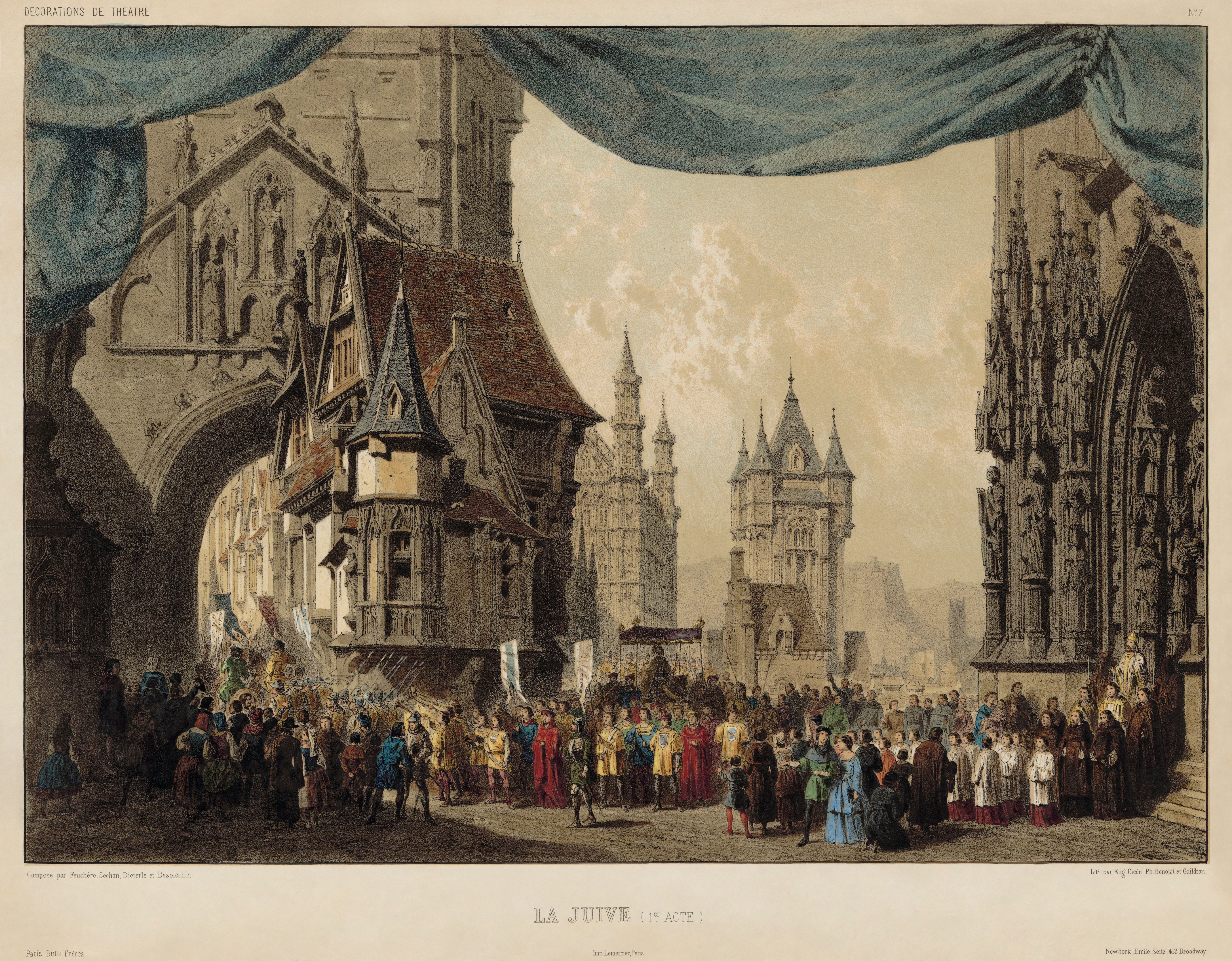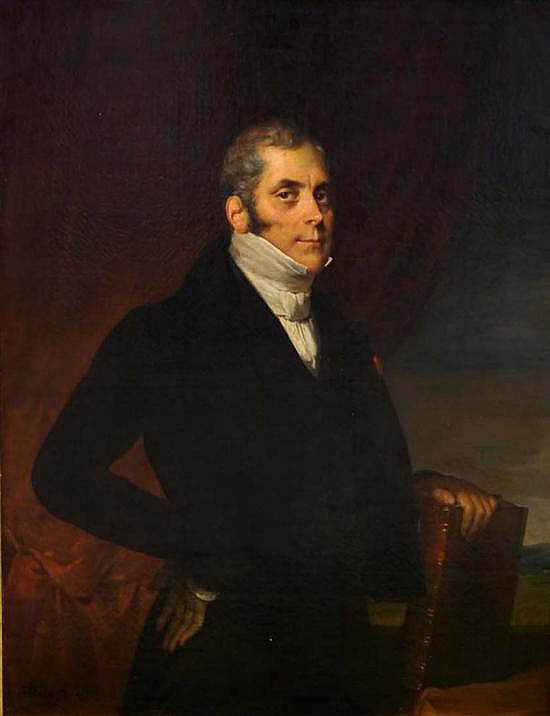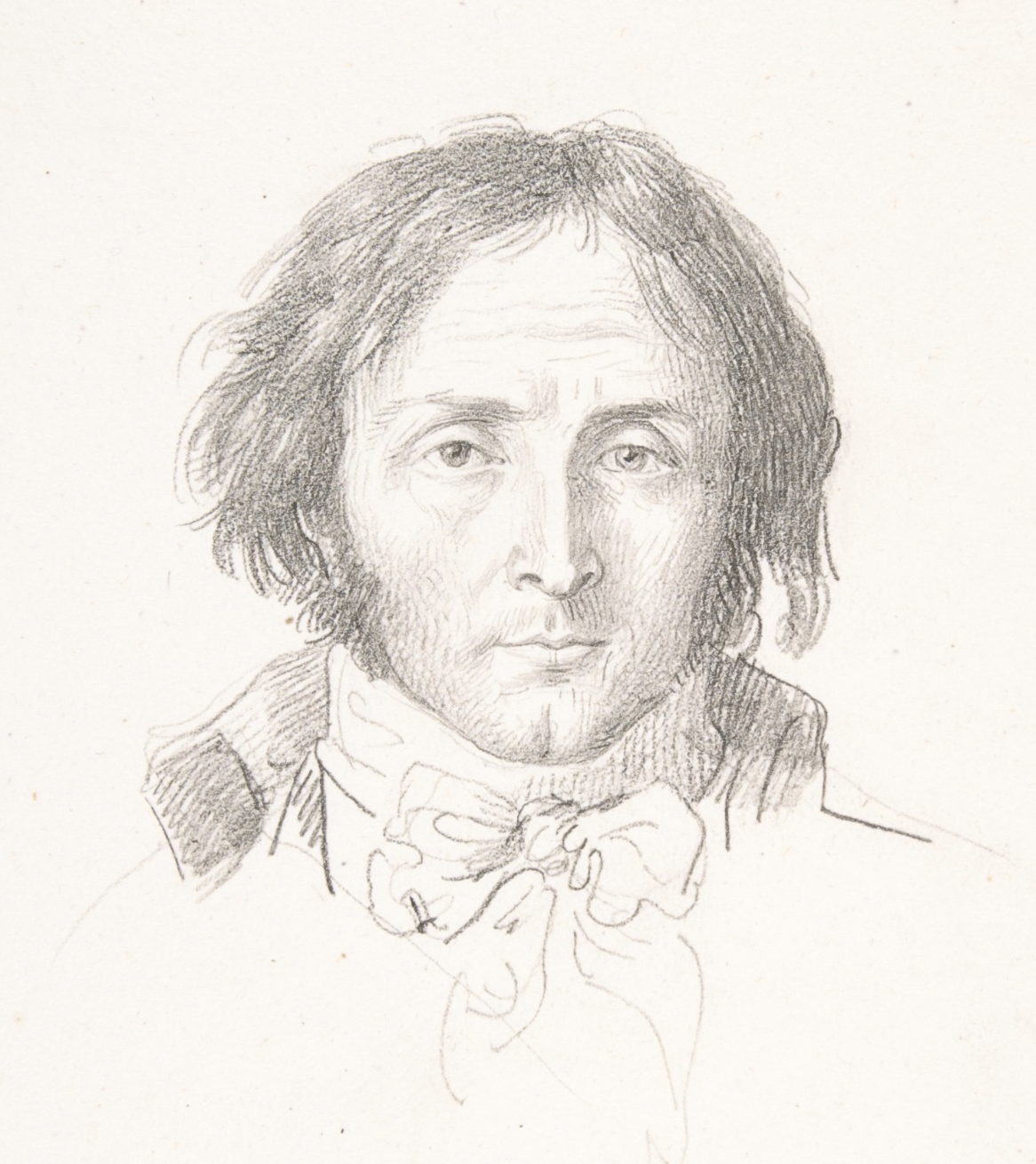|
Georg Von Hofmann
Georg von Hofmann (29 October 1769 (According to other sources: 1771) – 7 May 1845) was an Austrian occasional poet. Life and work Born in Vienna, Hofmann was secretary at the Vienna Theater am Kärntnertor and, as successor to Georg Friedrich Treitschke, opera poet there. He translated many foreign-language opera libretti into German. He wrote two poems for which Franz Schubert composed the music in 1820: ''Die Zauberharfe'' ( D 644) and ''Die Zwillingsbrüder'' (D 647). Hofmann is also said to have provided the textual basis for the alleged rehearsal work with which, according to Anton Schindler, Schubert applied for a vice-conductorship at the Kärntnertortheater in 1826, which failed due to the conduct of the prima donna Nanette Schechner. Otto Erich Deutsch, however, describes this incident as implausible. Hofmann died in Vienna at the age of 75. Work Schauspiele * Ludwig und Louise, or: Der 9. Thermidor (Schauspiel) 1815 * Landleben (Lustspiel) 1817 * Das Jagdschlo ... [...More Info...] [...Related Items...] OR: [Wikipedia] [Google] [Baidu] |
Occasional Poetry
Occasional poetry is poetry composed for a particular occasion. In the history of literature, it is often studied in connection with orality, performance, and patronage. Term As a term of literary criticism, "occasional poetry" describes the work's purpose and the poet's relation to subject matter. It is not a genre, but several genres originate as occasional poetry, including epithalamia (wedding songs), dirges or funerary poems, paeans, and victory odes. Occasional poems may also be composed exclusive of or within any given set of genre conventions to commemorate single events or anniversaries, such as birthdays, foundings, or dedications. Occasional poetry is often lyric because it originates as performance, in antiquity and into the 16th century even with musical accompaniment; at the same time, because performance implies an audience, its communal or public nature can place it in contrast with the intimacy or personal expression of emotion often associated with the term " ... [...More Info...] [...Related Items...] OR: [Wikipedia] [Google] [Baidu] |
Karl August Krebs
Karl August Krebs (16 January 1804 as Karl August Miedke – 16 May 1880), also Carl, Miedtke, was a German pianist, composer, conductor and ''Kapellmeister''. Life Krebs was born in Nuremberg in 1804. His parents were the actor Carl Miedke and the singer Charlotte Miedke, née Pfister, who both worked at the Staatstheater Nürnberg there. In 1805, the family moved to Stuttgart, where his mother died just one year later. Karl August was adopted, with his father's consent, by the court singer Johann Baptist Krebs and his wife Maria Anna, and subsequently took the name of his foster father. His foster father's activities at the and his many contacts in artistic circles encouraged Karl August's interest in music. As early as his sixth year, he played piano concertos by Mozart, Dussek and Ries, taught by Johann Nepomuk Schelble. His talent for composition, nurtured by his adoptive father, also caused a great stir and he was counted among the child prodigies of his time. In 1825, a ... [...More Info...] [...Related Items...] OR: [Wikipedia] [Google] [Baidu] |
Jacques Halévy
Ancient and noble French family names, Jacques, Jacq, or James are believed to originate from the Middle Ages in the historic northwest Brittany region in France, and have since spread around the world over the centuries. To date, there are over one hundred identified noble families related to the surname by the Nobility & Gentry of Great Britain & Ireland. Origins The origin of this surname ultimately originates from the Latin, Jacobus which belongs to an unknown progenitor. Jacobus comes from the Hebrew name, Yaakov, which translates as "one who follows" or "to follow after". Ancient history A French knight returning from the Crusades in the Holy Lands probably adopted the surname from "Saint Jacques" (or "James the Greater"). James the Greater was one of Jesus' Twelve Apostles, and is believed to be the first martyred apostle. Being endowed with this surname was an honor at the time and it is likely that the Church allowed it because of acts during the Crusades. Indeed, ... [...More Info...] [...Related Items...] OR: [Wikipedia] [Google] [Baidu] |
La Juive
''La Juive'' () (''The Jewess'') is a grand opera in five acts by Fromental Halévy to an original French libretto by Eugène Scribe; it was first performed at the Opéra, Paris, on 23 February 1835. Composition history ''La Juive'' was one of the most popular and admired operas of the 19th century. Its libretto (text) was the work of Eugène Scribe, the prolific dramatic author. Scribe was writing to the tastes of the Opéra de Paris, where the work was first performed – a work in five acts presenting spectacular situations (here the Council of Constance of 1414), which would allow a flamboyant staging in a setting which brought out a dramatic situation which was also underlined by a powerful historical subject. In addition to this, there could be choral interludes, ballet and scenic effects which took advantage of the entire range of possibilities available at the Paris Opera. Because of the story of an impossible love between a Christian man and a Jewish woman, the wor ... [...More Info...] [...Related Items...] OR: [Wikipedia] [Google] [Baidu] |
Daniel-François-Esprit Auber
Daniel-François-Esprit Auber (; 29 January 178212 May 1871) was a French composer and director of the Paris Conservatoire. Born into an artistic family, Auber was at first an amateur composer before he took up writing operas professionally when the family's fortunes failed in 1820. He soon established a professional partnership with the librettist Eugène Scribe that lasted for 41 years and produced 39 operas, most of them commercial and critical successes. He is mostly associated with opéra-comique and composed 35 works in that genre. With Scribe he wrote the first French grand opera, ''La muette de Portici, La Muette de Portici'' (The Dumb Woman of Portici) in 1828, which paved the way for the large-scale works of Giacomo Meyerbeer. Auber held two important official musical posts. From 1842 to 1871 he was director of France's premier music academy, the Paris Conservatoire, which he expanded and modernised. From 1852 until the fall of the Second French Empire, Second Empire in ... [...More Info...] [...Related Items...] OR: [Wikipedia] [Google] [Baidu] |
Eugène Scribe
Augustin Eugène Scribe (; 24 December 179120 February 1861) was a French dramatist and librettist. He is known for writing " well-made plays" ("pièces bien faites"), a mainstay of popular theatre for over 100 years, and as the librettist of many of the most successful grand operas and opéras-comiques. Born to a middle-class Parisian family, Scribe was intended for a legal career, but was drawn to the theatre, and began writing plays while still in his teens. His early years as a playwright were unsuccessful, but from 1815 onwards he prospered. Writing, usually with one or more collaborators, he produced several hundred stage works. He wrote to entertain the public rather than educate it. Many of his plays were written in a formulaic manner which aimed at neatness of plot and focus on dramatic incident rather than naturalism, depth of characterisation or intellectual substance. For this he was much criticised by intellectuals, but the "well-made play" remained established in ... [...More Info...] [...Related Items...] OR: [Wikipedia] [Google] [Baidu] |
Gustave III (Auber)
''Gustave III, ou Le bal masqué'' (''Gustavus III, or The Masked Ball'') is an ''opéra historique'' or grand opera in five acts by Daniel Auber, with a libretto by Eugène Scribe. Performance history It received its first performance at the Salle Le Peletier of the Paris Opéra on 27 February 1833, with costumes designed by Eugène Lami and Paul Lormier, and sets by Léon Feuchère (act 1 and act 5, scene 2), Jules Diéterle (act 2), Alfred (act 3), Pierre-Luc-Charles Ciceri (act 4), René-Humanité Philastre and Charles-Antoine Cambon (act 5, scene 1). The opera was a major success for the composer, with 168 performances until 1853. Ellen Creathorne Clayton has translated French critic Jules Janin's description of the last act, which was often presented separately from the opera, as follows: "I believe ... that never, even at the Opéra, was seen a spectacle more grand, more rich, more curious, more magnificent, that the fifth act of ''Gustave''. It is a fairlyland of beau ... [...More Info...] [...Related Items...] OR: [Wikipedia] [Google] [Baidu] |
Gioachino Rossini
Gioachino Antonio Rossini (29 February 1792 – 13 November 1868) was an Italian composer who gained fame for his 39 operas, although he also wrote many songs, some chamber music and piano pieces, and some sacred music. He set new standards for both comic and serious opera before retiring from large-scale composition while still in his thirties, at the height of his popularity. Born in Pesaro to parents who were both musicians (his father a trumpeter, his mother a singer), Rossini began to compose by the age of 12 and was educated at music school in Bologna. His first opera was performed in Venice in 1810 when he was 18 years old. In 1815 he was engaged to write operas and manage theatres in Naples. In the period 1810–1823 he wrote 34 operas for the Italian stage that were performed in Venice, Milan, Ferrara, Naples and elsewhere; this productivity necessitated an almost formulaic approach for some components (such as overtures) and a certain amount of self-borrowing. During ... [...More Info...] [...Related Items...] OR: [Wikipedia] [Google] [Baidu] |
Gaetano Rossi
Gaetano Rossi (; 18 May 1774 – 25 January 1855) was an Italian opera librettist for several of the well-known ''bel canto''-era composers including Gioachino Rossini, Gaetano Donizetti, and Saverio Mercadante in Italy and Giacomo Meyerbeer in one of his early Italian successes. Other composers with whom he worked included Simon Mayr, a composer and Donizetti's teacher, as well as the prolific Giovanni Pacini. Biography Born in Verona, Rossi was writing religious verse by the time that he was 13 years old. He wrote libretti for about 60 years, beginning in 1797 with mostly farsas. Rossi wrote the texts for some significant operas by the well-known composers of the era. These included '' Tancredi'' and '' Semiramide'' for Rossini and '' Il crociato in Egitto'' for Meyerbeer, as well as later operas for Donizetti such as '' Maria Padilla'' (as co-author) and '' Linda di Chamounix''. In addition to his writing, he also worked for a time as the stage director for the Teatro Filarmo ... [...More Info...] [...Related Items...] OR: [Wikipedia] [Google] [Baidu] |
Semiramide
''Semiramide'' () is an opera in two acts by Gioachino Rossini. The libretto by Gaetano Rossi is based on Voltaire's tragedy ''Semiramis'', which in turn was based on the legend of Semiramis of Assyria. The opera was first performed at La Fenice in Venice on 3 February 1823. ''Semiramide'' was Rossini's final Italian opera and according to Richard Osborne, "could well be dubbed ''Tancredi Revisited''". As in '' Tancredi'', Rossi's libretto was based on a Voltaire tragedy. The music took the form of a return to vocal traditions of Rossini's youth, and was a melodrama in which he "recreated the baroque tradition of decorative singing with unparalleled skill". The ensemble-scenes (particularly the duos between Arsace and Semiramide) and choruses are of a high order, as is the orchestral writing, which makes full use of a large pit. After this splendid work, one of his finest in the genre, Rossini turned his back on Italy and moved to Paris. Apart from '' Il viaggio a Reims'', whic ... [...More Info...] [...Related Items...] OR: [Wikipedia] [Google] [Baidu] |
Gaspare Spontini
Gaspare Luigi Pacifico Spontini (14 November 177424 January 1851) was an Italian opera composer and conductor from the classical era. Biography Born in Maiolati, Papal State (now Maiolati Spontini, Province of Ancona), he spent most of his career in Paris and Berlin, but returned to his place of birth at the end of his life. During the first two decades of the 19th century, Spontini was an important figure in French ''opera''. In his more than twenty operas, Spontini strove to adapt Gluck's classical '' tragédie lyrique'' to the contemporary taste for melodrama, for grander spectacle (in '' Fernand Cortez'' for example), for enriched orchestral timbre, and for melodic invention allied to idiomatic expressiveness of words. As a youth, Spontini studied at the Conservatorio della Pietà de' Turchini, one of four active music conservatories of Naples. Working his way from Italian city to city, he got his first break in Rome, with his successful comedy ''Li Puntigli delle Do ... [...More Info...] [...Related Items...] OR: [Wikipedia] [Google] [Baidu] |
Charles Brifaut
Charles Brifaut (15 February 1781, Dijon – 5 June 1857, Paris) was a French poet, journalist, publicist and playwright. Biography A liberal royalist, Brifaut edited the ''Gazette de France'' and attended the salon of Madame Vigée-Lebrun. He also worked as a censor and it was he who the interior minister entrusted with controlling ''Hernani'' and with warning Victor Hugo that ''Marion Delorme'' had been stopped (that play would not be put on until two years later). Pensioned off by Charles X, he was elected to the Académie française in 1826. He was associated with the editing of the memoirs of the actress Lola Montez, one of the lovers of Alexandre Dumas (''Aventures de la celèbre danseuse raconté par elle-même'', 1847). Works *''Rosamonde, poème en trois chants, suivi de poésies diverses'' (1813) *''Ninus II'', tragedy in 5 acts, Paris, Théâtre-Français (19 April 1813) *''Olimpie'', opera in 3 acts after Voltaire, music by Gaspare Spontini, Paris, Académie Royale ... [...More Info...] [...Related Items...] OR: [Wikipedia] [Google] [Baidu] |






